Technology skills as a lawyer have become just as important as legal knowledge in the digital age. The legal field has evolved significantly with new technologies, requiring lawyers to adapt and stay competitive. Lawyers who embrace modern tools and digital solutions improve efficiency, streamline processes, and provide more effective client service. Whether you’re drafting contracts, conducting research, or managing client data, technology can help you do it faster, more accurately, and more securely.
This article will discuss the importance of technology skills for lawyers, the technologies that can elevate their practice, and how to acquire these essential skills to stay relevant in today’s fast-paced legal environment.
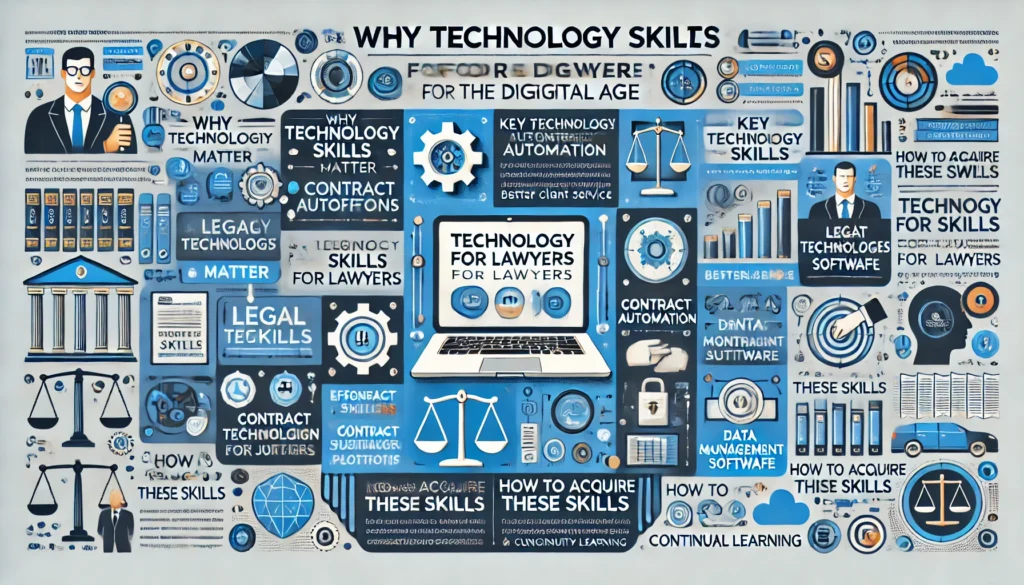
Why Technology Skills are Essential for Lawyers
Adapting to a Changing Legal Landscape
The legal industry is undergoing rapid transformation. As technology continues to shape all aspects of our lives, it’s changing how lawyers work, too. Technology has become a core component of legal practice, from using AI-powered tools for legal research to implementing secure document management systems. Lawyers who fail to adapt to these changes risk falling behind their peers.
Having technology skills as a lawyer can give you a competitive edge. It allows you to offer more innovative solutions to your clients, improve workflow efficiency, and ensure that your practice runs smoothly.
Improving Client Communication
In today’s world, clients expect fast, clear, and transparent communication. Technology skills as a lawyer help you leverage various communication tools such as video conferencing platforms, encrypted messaging services, and case management software. These tools enable you to constantly contact clients, providing them with updates and answering questions swiftly, thus enhancing your professional relationships and trust.
Boosting Efficiency and Productivity
Lawyers are often overwhelmed with the sheer volume of tasks, from document drafting and case management to legal research and client communications. Integrating technology into your practice helps automate repetitive tasks, manage deadlines, and improve workflow. Tools like document automation software, e-discovery tools, and time-tracking apps are invaluable for managing your time and work more effectively.
Moreover, cloud-based platforms allow you to access case files and documents anytime and anywhere, boosting your ability to respond quickly and efficiently to clients’ needs.
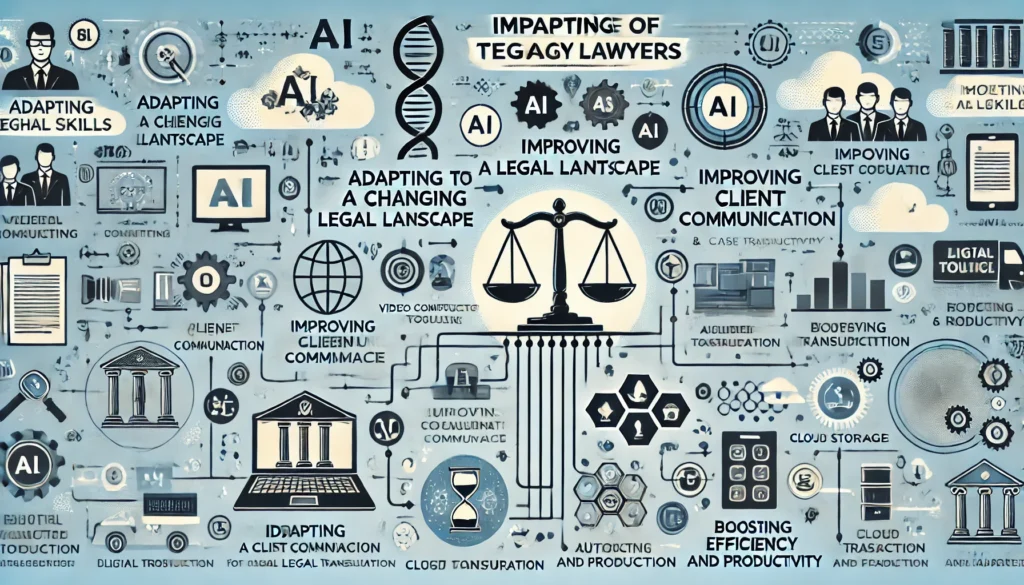
Key Technology Skills Every Lawyer Should Master
Legal Research Tools
Effective legal research is a cornerstone of any successful legal practice. Traditional methods, such as consulting physical law books, are time-consuming and often inefficient. Today, a lawyer can use several advanced technology skills, such as online legal research databases, including Westlaw, LexisNexis, and Fastcase. These platforms help you quickly locate case laws, statutes, and precedents and provide insights into legal trends, case analysis, and litigation outcomes.
Familiarity with these tools is crucial for staying ahead in the competitive legal field. They enable you to conduct research more efficiently and accurately, essential for providing well-informed advice to your clients.
Data Management and Cybersecurity
With an increasing amount of sensitive client information stored digitally, understanding data management and cybersecurity is one of a lawyer’s most essential technology skills for lawyers. Law firms are prime targets for cyberattacks due to the valuable data they handle. Implementing secure practices to protect this data, such as encrypted emails and secure file-sharing services, should be a top priority for all lawyers.
Moreover, lawyers must be proficient in managing case-related documents and client information using secure cloud-based systems. These platforms allow lawyers to organize and share documents efficiently while maintaining client confidentiality and meeting legal compliance standards.
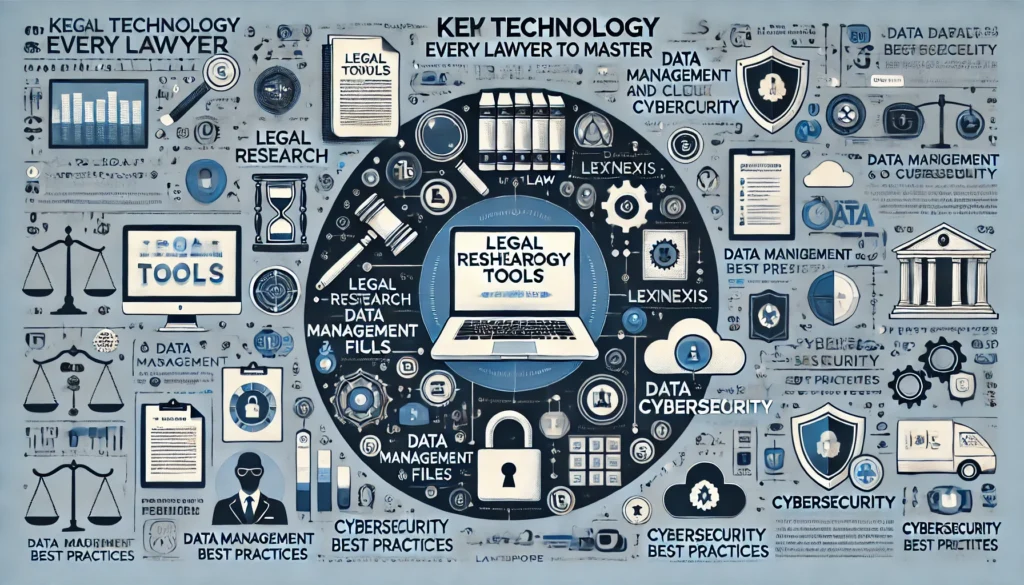
Document Automation
Document automation is a game-changer for lawyers, particularly when drafting routine documents like contracts, wills, and NDAs. Using technology skills as a lawyer to automate these tasks can save you hours of manual work, reduce errors, and help streamline your operations. Utilizing automation software allows you to create templates and generate documents with a few clicks, leaving you more time to focus on high-value tasks.
Furthermore, automated systems can integrate with your case management software, making it easier to organize, track, and retrieve documents as needed.
Case and Practice Management Software
Efficient case management is critical for lawyers who manage multiple clients and cases simultaneously. A lawyer’s technology skills should include proficiency in case management software, which helps them track case progress, manage documents, schedule deadlines, and communicate with clients. Popular tools such as Clio, MyCase, and PracticePanther are explicitly designed for the legal industry and offer features tailored to a lawyer’s workflow.
These tools can help you stay organized, meet deadlines, and ensure that no critical tasks or documents slip through the cracks. With case management software, you can handle the complexities of your practice with greater ease and accuracy.
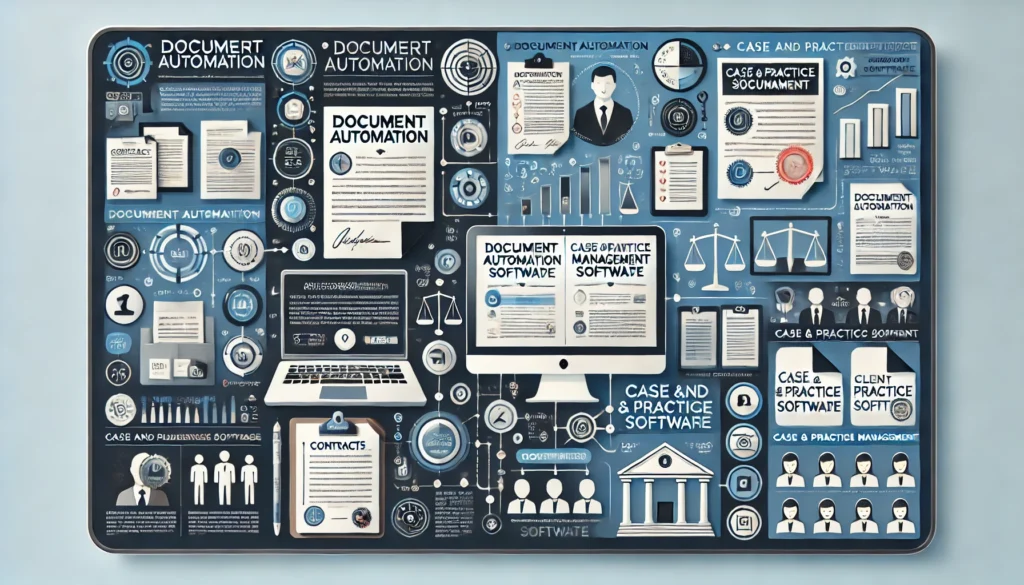
How to Improve Your Technology Skills as a Lawyer
Stay Updated with Industry Trends
The pace of technological advancements can be overwhelming, but staying informed is key to acquiring valuable technology skills as a lawyer. Subscribe to legal tech blogs, attend webinars, and participate in industry conferences to learn about the latest tools and software being used in the legal field. Continuing legal education (CLE) courses focusing on legal technology can also provide in-depth training on the various tools that can benefit your practice.
Get Hands-On Experience
The best way to master technology tools is to use them regularly. Start by incorporating a simple document management system or case management software into your daily workflow. You can experiment with advanced tools like AI-based research assistants or contract review software as you become more comfortable. Many platforms offer free trials, so you can explore different technologies before committing to a particular one.
Collaborate with Tech-Savvy Colleagues
If you’re not tech-savvy, collaborating with colleagues with strong technology skills as a lawyer can be a great way to learn. Work together on projects, attend training sessions, and share insights on how you can incorporate technology into your practice. Learning from others already proficient in legal tech can accelerate your development.
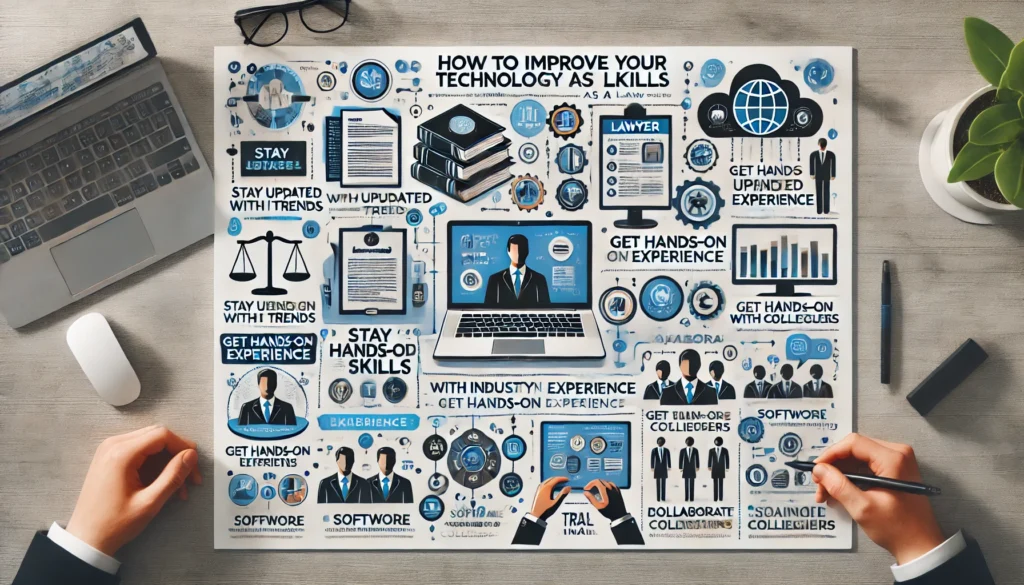
Conclusion
In today’s fast-paced legal environment, technology skills as a lawyer are not just a luxury but a necessity. From legal research tools and document automation to cybersecurity and case management software, the right technology can boost your efficiency, improve client relationships, and help you stay ahead of the competition.
To succeed in the modern legal landscape, lawyers must continuously develop their tech skills and embrace innovative tools. Doing so will enhance your practice and position yourself as a forward-thinking, tech-savvy professional in the eyes of your clients and peers.
FAQs
Why are technology skills necessary for lawyers?
Technology skills allow lawyers to work more efficiently, manage their practice effectively, and provide better client service. They help automate routine tasks, enhance research capabilities, and improve communication.
What technology should lawyers focus on learning?
Lawyers should focus on learning legal research tools, case management software, document automation tools, and cybersecurity practices to protect sensitive client data.
How can lawyers improve their technology skills?
Lawyers can improve their tech skills by attending legal tech webinars, subscribing to tech blogs, participating in continuing legal education courses, and gaining hands-on experience with different tools.
Can technology replace lawyers?
While technology can automate specific tasks, it cannot replace lawyers entirely. Legal technology enhances law practice by improving efficiency and accuracy. However, human judgment and expertise are still necessary for many aspects of legal work.
How can technology improve client communication?
Lawyers can use video conferencing, secure messaging platforms, and case management tools to improve client communication, provide real-time updates, answer queries quickly, and ensure confidentiality.


